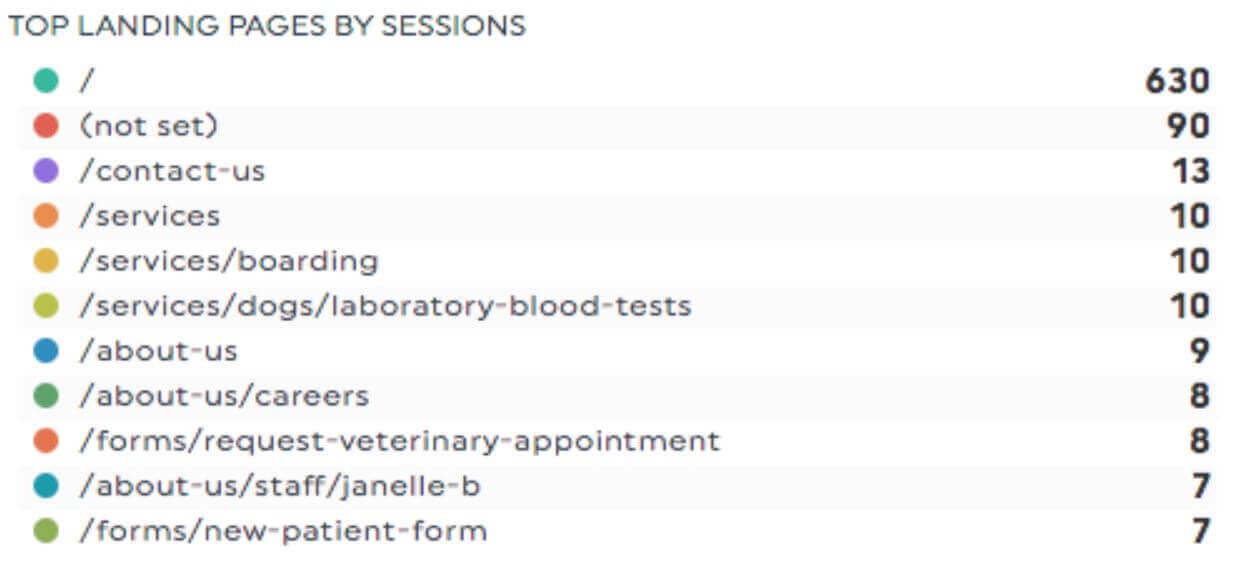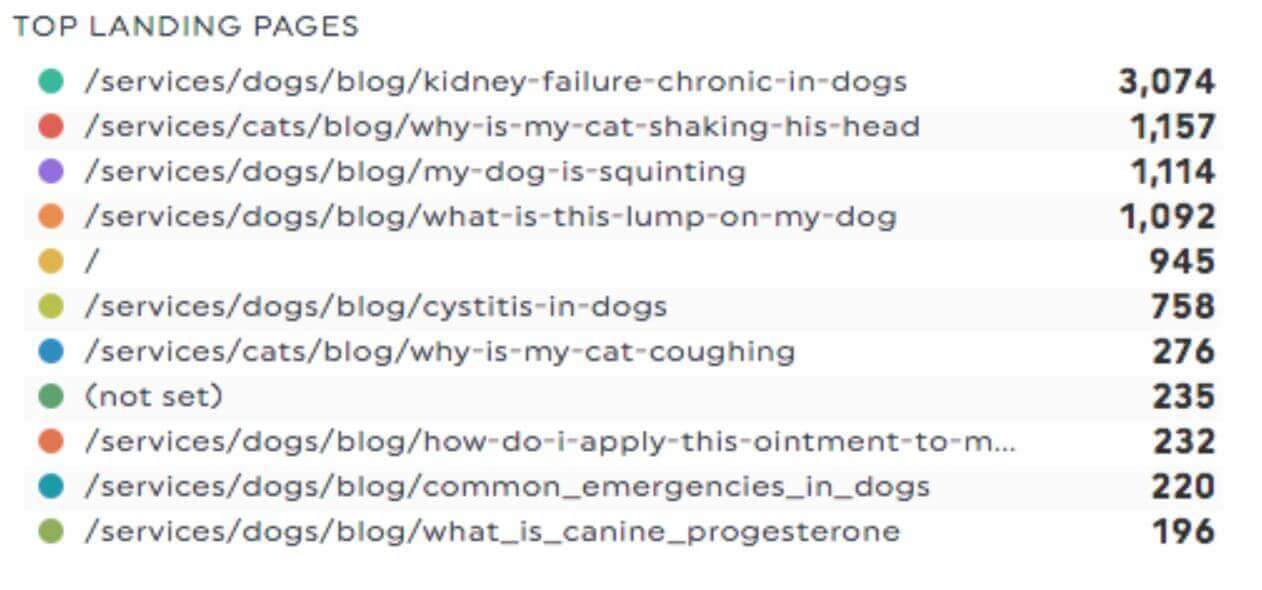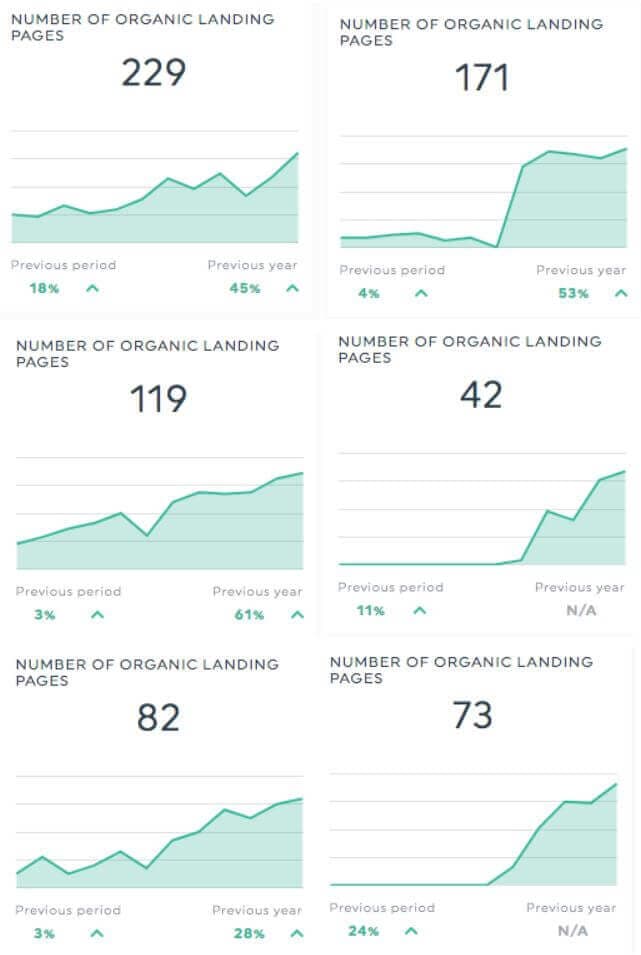The Benefits of Veterinary Blogging
“Content is king!”
Those three words have been valid since the inception of the internet and may be the only aspect of digital marketing that has remained unchanged in that time.
Did you know that blogging can increase the number of visits to your veterinary website by several thousand percent? It’s true - if done right. In this article, we will prove it to you by laying out the strategy and showing you actual case studies. But first...
The First Thing Every Veterinary Practice Owner Needs to Understand
Veterinary marketing has changed a lot over the past several decades. For a long time, most veterinarians considered “marketing” as a somewhat unethical practice that they wanted almost no part of, outside of a small ad in the YellowPages. However, with the sweeping technological changes of the past 15 years and through the ubiquitous influence of the internet and constant media exposure, consumer habits and our society at large have changed. “Marketing” is no longer synonymous with “pushy advertising” and is now about understanding how to find your ideal audience and trying to start a relationship with them by offering valuable information that is well-aligned with the mission, values, and culture of your business.
In the past, the pervasive assumption among veterinarians was that customers would show up at their practices as long as they were practicing high-quality and ethical veterinary medicine. And this may have been the case 30 years ago. Still, today, every veterinarian knows that roughly 90% of their clients will have checked with “Dr. Google” before their visit into the practice and have some ideas about what the internet said about whatever symptoms their pet is possibly showing. Sound familiar?

That is just how the world works now, and every time a local pet owner goes online and gets information from another source, that is an opportunity that your practice missed. Pet owners in your local area need a go-to expert to help them care for their pet, and if you genuinely want to be that provider, then you need to start delivering value in the place your clients turn to as soon as they start looking for help. You need an excellent digital marketing strategy.
What Does an Effective Digital Marketing Strategy for Veterinarians Entail?
It starts with having a great website. A great veterinary website should be an in-depth information resource covering all of the different services you provide, including information relevant to the types of things that your clients might be typing into Google. They start their research based on the conditions, signs, and symptoms that they see in their pet. Think of your website as the core repository of information from which all your marketing will stem. Once that foundation is laid out on your website, the next layer is blogging!
So, Exactly How Does Blogging Fit into All of This?
Once you have added service pages with lots of information about every service you provide to your website, think of them as the foundation for that topic. Then, begin consistently adding blogs to your website that expand on those topics discussing frequently asked questions, specific cases, or more general pet health and pet care recommendations. Typically, you want to make sure that your blog articles relate to one or more of your practice's services. Also, ensure that you include links from those posts to the relevant service pages on your website.
What are the Benefits of Doing This?
First of all… GOOGLE LOVES BLOGGING! Keep in mind that approximately 70% of all traffic to veterinary websites in the United States comes from Google search results. That means that the most significant opportunity you have to get in front of prospective clients is when they are actively looking for information relating to the services you provide by searching in Google.
So how do you get your veterinary practice to the top of those Google search results? Many factors go into Google’s algorithm and decide what websites should show up in the search results for certain searches. It just so happens that the strategy that we have outlined so far in this article, of creating service pages and then continuing to add blog articles that further discuss information relevant to the topic, is a compelling search engine optimization (SEO) strategy. This strategy satisfies many aspects of Google's algorithm to create its search results.
Here at GeniusVets, our team has extensive knowledge on SEO, including one of our founders, David Hall, who has written several published books on SEO and is also the founder of the very successful SEO website, TheSEOEffect.com.
Ensuring that your Content is Well-Aligned with the “Keywords” People are Typing into Google
It’s not enough to rank high for your brand name. If you’re trying to drive new users to your veterinary website, they have probably never heard of your veterinary practice before. Therefore, they won’t be searching Google for your brand name but instead for “keywords” related to specific veterinary topics they need information on. Whatever someone types into Google, whether it is a complete sentence, a question, or just a few words that loosely describe a topic… whatever someone types into Google is referred to as a “keyword.”
Because of this, before you create any content, you should put yourself in the mindset of your client and consider what they might type into Google if looking for information on the topic you want to cover. Then, make sure to use some of those keywords on your page.

Veterinarians must have pages on their website with in-depth, keyword-rich content about veterinary topics. After all, if you don’t have a page on your website dedicated to cat microchipping, how can you expect to show up in the search results for the term “local veterinarians that provide cat microchipping”?
Examples of the Effectiveness of Keyword-Rich Veterinary Content
To show you how effective regular blogging and keyword-rich content can be in driving new visitors to your veterinary website, let’s look at some examples from our veterinary clients!
To illustrate this, we’ll begin by looking at what pages of the website visitors are entering the site on. This metric is referred to as the “Landing Page." It is a good indication of what keywords drive traffic to your website.
 Example A: Before Blogging
Example A: Before Blogging
Example A is a monthly snapshot showing the top landing pages of one of our clients before they signed on with GeniusVets and began utilizing our blog service. In this example, you can see that most website visitors (630) were entering the site on the client’s homepage. This leads us to safely hypothesize that these users had already known about our client and reached their site by either typing the URL directly into their browser or by searching their brand name on Google and clicking through via their organic listing.
To further verify this claim, we can take a look to see what percentage of these users had previously been to the site. This metric is known as Returning Visitors and gives us a good indication of the user base’s knowledge and awareness of our client’s brand. After all, if they have been to your website in the past, there is a high likelihood that they are aware of you! In this case, it was 73%, meaning that just 27% of the total users to the site that month were New Visitors. Not very high, right? Now let’s take a look at what can happen when you begin a regular blog posting routine.
 Example B: After Blogging
Example B: After Blogging
Example B is again a monthly snapshot showing the top landing pages of one of our clients, who in this case has taken advantage of our GeniusVets blogging program. In this example, you can see that not only is total traffic significantly higher, but that a majority of users are entering the site via keyword-rich blog posts about specific veterinary topics. In this example, New Visitors accounted for over 80% of total traffic that month!
Still not convinced Your Veterinary Website Needs a Blog?
“But that’s just one example, Jake. I need to see more before I’m a believer.” Alright, no problem! Let’s take a look at another critical metric regarding the effectiveness of blogging for veterinarians: your site's total number of organic landing pages.
By now, you know that a Landing Page is a page a website visitor entered your site. Taking it a step further, ORGANIC landing pages refer to the pages in which visitors coming from search engines (organic traffic) are entering your site. Think of it like this: blogging creates keyword-rich content >> keyword rich-content ranks well in Google >> ranking well in Google drives new users to your website >> driving new users to your website increases your ability to convert new visitors into clients. Therefore, increasing the number of pages on your site that are ranking well for specific veterinary keywords (Organic Landing Pages), in turn, increases your opportunity to turn web searches into clients. Simple, isn’t it?
Here are some examples from our clients showing how regular blog posting can significantly increase your website's number of organic landing pages.

Some of these examples are more dramatic than others. Still, all of them show one thing: regular blogging leads to an increased number of organic landing pages, effectively increasing the number of touchpoints for potential clients.
Flex those Creative Writing Muscles!
The GeniusVets platform allows you to showcase your writing skills if inspiration and/or time permits. Once you’re logged in, you can find a link to our Content Submission Network, where you can share with us a blog that you’ve written and published on your GeniusSite. Your Client Success Manager can help you access the Network and publish your own blog, so don’t hesitate to reach out!
This Network is not just about showing off to us your brilliant blogs. Once you upload an article, it can become accessible for other GeniusVets clients to post on their practice pages. And, of course, your practice will get the writing credit. Certainly, this is great for your professional reputation: your insight and recommendations are valuable enough to be published on veterinary websites all over the country!

Beyond that, the writing credit that every other website will give you links back to your practice website. This is known as backlinking, and search engines love it! Your credibility, and subsequently, your search rankings are bolstered when reputable websites choose your site as a source. The more high-quality websites point to your site, the better your site performs in search.
Chances are, you answer a lot of the same questions in exam rooms and during phone calls. That means you already have a well-reasoned explanation for many pet care topics. Turn those into blog articles, submit those to the GeniusVets Content Network, and help your GeniusSite perform even more brilliantly!
“I’m a Veterinarian. I don’t have time to write blogs every week!”
By now, we hope you understand how regular blog posting can directly affect your bottom line in a very significant way! But let’s face it, blog writing requires a significant time commitment, and as a veterinarian, you’re likely stretched pretty thin in running your practice as it is. How can we expect you to find time to sit down and write a couple of blog posts every week? It would be almost impossible!
The good thing is you don’t have to... just as long as you have someone that does! Whether it’s a part-time marketing employee that works for your practice a couple of days per week, or a full-service veterinary marketing partner like GeniusVets, blogging is a very effective digital marketing strategy for veterinarians looking to increase their bottom line.
Do you have more questions about what a blog as part of a complete digital marketing platform can do for your veterinary practice? Schedule a GeniusVets Demo for more on this as well as expert hiring strategies and guidance on improving profitability!

